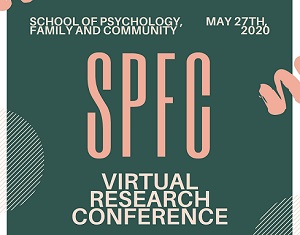Faculty-Student Collaboration
1
Faculty Sponsor(s)
Stephanie E. Armes, Ph.D.
Presentation Type
Event
Project Type
Research in progress
Primary Department
Marriage and Family Therapy
Description
Secondary trauma (ST) is a risk mental health clinicians face when treating trauma clients. To our knowledge, research has not explored how a clinician’s trauma training could protect against developing secondary trauma. We used data from a larger national project examining ST in a sample of Marriage and Family Therapists (MFTs; N = 200). A majority of the sample (n = 149; 64.5%) reported receiving specific trauma training. We explored qualitative reports of the specific trauma trainings clinicians received; the most commonly reported were Trauma Focused Cognitive Behavioral Therapy (TFCBT; n = 36) and Eye Movement Desensitization and Reprocessing (EMDR; n = 35). Future analyses will focus on whether using specific evidence-based trauma models can decrease levels of ST in clinicians.
Copyright Status
http://rightsstatements.org/vocab/InC/1.0/
Additional Rights Information
Copyright held by author(s).
Utilizing evidence-based trauma trainings in the prevention of secondary trauma
Secondary trauma (ST) is a risk mental health clinicians face when treating trauma clients. To our knowledge, research has not explored how a clinician’s trauma training could protect against developing secondary trauma. We used data from a larger national project examining ST in a sample of Marriage and Family Therapists (MFTs; N = 200). A majority of the sample (n = 149; 64.5%) reported receiving specific trauma training. We explored qualitative reports of the specific trauma trainings clinicians received; the most commonly reported were Trauma Focused Cognitive Behavioral Therapy (TFCBT; n = 36) and Eye Movement Desensitization and Reprocessing (EMDR; n = 35). Future analyses will focus on whether using specific evidence-based trauma models can decrease levels of ST in clinicians.


